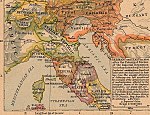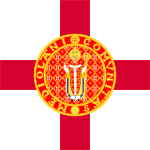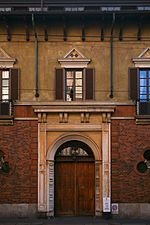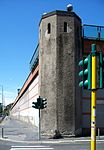Cisalpine Republic
1790s in Italy1797 establishments in Italy1797 in Italy1800s in Italy1802 disestablishments in Italy ... and 9 more
1802 in ItalyCisalpine RepublicClient states of the Napoleonic WarsEarly Modern ItalyFormer republicsItalian statesItalian unificationStates and territories disestablished in 1802States and territories established in 1797

The Cisalpine Republic (Italian: Repubblica Cisalpina) was a sister republic of France in Northern Italy that existed from 1797 to 1799, with a second version until 1802.
Excerpt from the Wikipedia article Cisalpine Republic (License: CC BY-SA 3.0, Authors, Images).Cisalpine Republic
Piazzale Francesco Baracca, Milan Municipio 1
Geographical coordinates (GPS) Address Nearby Places Show on map
Geographical coordinates (GPS)
| Latitude | Longitude |
|---|---|
| N 45.466666666667 ° | E 9.1666666666667 ° |
Address
Casa Laugier
Piazzale Francesco Baracca
20123 Milan, Municipio 1
Lombardy, Italy
Open on Google Maps











